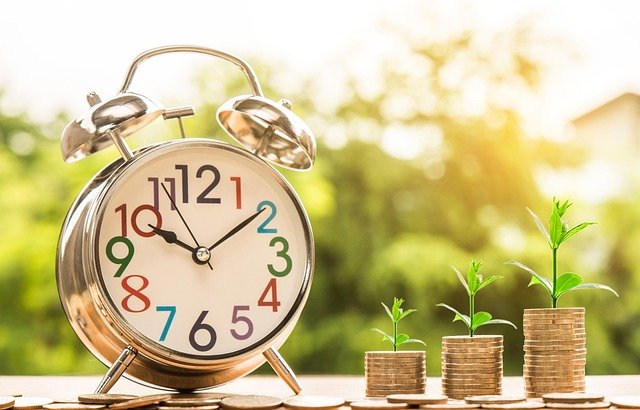Slow Dating: A Mindful Approach to Modern Romance
The pace of modern life has accelerated, but some are hitting the brakes when it comes to matters of the heart. Slow dating, a deliberate and thoughtful approach to romantic relationships, is gaining traction among singles seeking meaningful connections. Read below to explore this emerging trend and its potential to reshape the landscape of love in our fast-paced world.

The Origins of Slow Dating
The concept of slow dating isn’t entirely new, but it has gained renewed interest in recent years as a response to the often overwhelming and unsatisfying nature of modern dating. Drawing inspiration from the slow food movement, which emphasizes quality, sustainability, and mindful consumption, slow dating applies similar principles to romantic relationships.
Historically, courtship rituals often involved extended periods of getting to know one another, often under the watchful eyes of family and community members. While modern slow dating doesn’t necessarily advocate for a return to chaperoned encounters, it does embrace the idea of taking time to build a foundation before rushing into a relationship.
The Pitfalls of Fast-Paced Dating Culture
The rise of dating apps and social media has dramatically altered the romantic landscape, offering unprecedented access to potential partners but also creating new challenges. Many users report feeling burned out by the constant swiping, messaging, and often superficial interactions that characterize online dating.
Research has shown that the abundance of choices in online dating can lead to decision paralysis and decreased satisfaction with chosen partners. The pressure to make quick judgments based on limited information can result in missed connections and a focus on surface-level attributes rather than deeper compatibility.
Key Principles of Slow Dating
Slow dating encourages a more intentional approach to romantic pursuits. Some key principles include:
-
Quality over quantity: Focus on fewer, more meaningful interactions rather than casting a wide net.
-
Mindful presence: Be fully engaged in each interaction, practicing active listening and genuine curiosity.
-
Gradual progression: Allow relationships to develop naturally without rushing into physical or emotional intimacy.
-
Self-reflection: Use dating experiences as opportunities for personal growth and self-discovery.
-
Honesty and authenticity: Prioritize open communication and being true to oneself from the start.
The Benefits of Taking It Slow
Proponents of slow dating argue that this approach offers numerous benefits for individuals seeking lasting relationships. By investing time and energy into getting to know potential partners, people can make more informed decisions about compatibility and shared values.
Slow dating can also help reduce anxiety and pressure associated with romantic pursuits. Without the expectation of immediate chemistry or commitment, individuals can relax and enjoy the process of connection. This approach may be particularly beneficial for those who have experienced dating burnout or are recovering from past relationship traumas.
Implementing Slow Dating in a Fast-Paced World
While the concept of slow dating is appealing to many, putting it into practice can be challenging in a world that often prioritizes instant gratification. However, there are several strategies that individuals can employ to embrace this mindful approach:
-
Limit dating app usage: Set specific times for online dating activities rather than constantly swiping.
-
Prioritize in-person meetings: Whenever possible, meet potential partners face-to-face in low-pressure settings.
-
Practice mindfulness: Incorporate meditation or other mindfulness techniques to stay present during dates.
-
Engage in shared activities: Choose date activities that allow for genuine conversation and shared experiences.
-
Communicate intentions: Be clear about your desire for a slower, more intentional approach to dating.
The Role of Technology in Slow Dating
While slow dating may seem at odds with digital matchmaking, technology can play a supportive role when used mindfully. Some dating apps have begun incorporating features that encourage more thoughtful interactions, such as limiting the number of matches per day or prompting users to engage in deeper conversations before meeting.
Virtual dating platforms, which gained popularity during the COVID-19 pandemic, can also facilitate slow dating by allowing individuals to connect from the comfort of their homes without the immediate pressure of physical meetups.
Challenges and Criticisms
Despite its potential benefits, slow dating is not without its critics. Some argue that it may be unrealistic in today’s fast-paced society or that it could lead to overthinking and missed opportunities. There’s also concern that slow dating might be used as an excuse for commitment-phobic behavior.
Additionally, the approach may not be suitable for everyone. Some individuals may prefer a more spontaneous approach to romance or may have life circumstances that make slow dating impractical.
The Future of Romantic Relationships
As society continues to grapple with the impacts of technology on human connection, slow dating offers a compelling alternative to the often frenzied nature of modern romance. While it may not be a one-size-fits-all solution, the principles of mindfulness, intentionality, and genuine connection that underpin slow dating could have far-reaching effects on how we approach relationships.
By encouraging individuals to slow down and invest in meaningful connections, this approach has the potential to foster more satisfying and lasting partnerships. As the trend continues to gain traction, it may lead to broader shifts in societal attitudes towards love, intimacy, and the value of taking time to build strong foundations in all types of relationships.





